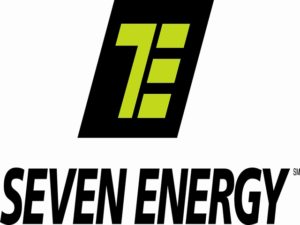
By Dipo Olowookere
Fitch Ratings has upgraded Nigeria-based Seven Energy International Limited’s Long-Term Issuer Default Rating to ‘CC’ from ‘RD’ (Restricted Default) following completion of the consent solicitation for the company’s 10.25% USD300 million senior secured notes due 2021.
Simultaneously, Fitch has affirmed wholly owned subsidiary Seven Energy Finance Limited’s $300 million senior secured notes at ‘C’ with a ‘RR6’ Recovery Rating.
Following the completion of Distressed Debt Exchange (DDE) in December 2016, Seven Energy may choose to pay interest on the notes in kind for up to four coupon payments between 11 October 2016 and 11 April 2018, subject to certain conditions.
However, its short-term liquidity remains extremely weak due to accumulated accounts receivables for sold natural gas, a limited ability to convert naira into dollars, and the ongoing Forcados export pipeline closure since February 2016.
Management has taken steps to improve the company’s liquidity, but we believe the current debt structure may be unsustainable and a default of some kind is probable.
All Seven Energy’s oil liftings from OMLs 4, 38 and 41 under the strategic alliance agreement (SAA) with the state-owned NPDC have stopped since February 2016, as the Forcados oil pipeline and terminal remain shut due to the threat of militant attacks. Management has given no estimate on when Forcados will be restarted.
As an alternative option, the company is considering barging oil via the inland Warri refinery. This option has not yet been tested by Seven Energy and we believe projected barging volumes would not compensate for the loss of the Forcados pipeline volumes.
On February 7, 2017, Seven Energy announced that Nigerian Petroleum Development Company Limited (NPDC) may terminate the SAA after 17 March 2017 unless the company meets outstanding cash calls.
Fitch said it understands from Seven Energy that it plans to challenge this potential action to preserve its contractual rights under the SAA. This may further worsen the company’s liquidity position and affect its operational profile; however, these risks are captured in the ‘CC’ rating.
Developing Natural Gas Business: The natural gas business in Nigeria’s southeast is an important growth driver for the company. It is now on track to ramp up gas sales to 150MMcfpd and more. The construction of the power grid to allow local power stations to run at full capacity has been completed and the Calabar power station (NIPP), one of the major off-takers, is able to generate additional electricity.
Uncertain Cash Flows from Gas: Near-term cash flows from the gas business are uncertain as sale volumes remain volatile and the company’s major gas off-takers, state-owned power stations, delay payments for consumed gas.
In November 2016, Seven Energy agreed a $112 million partial payment guarantee with Nigeria’s federal government for gas supply to the Calabar power plant and other customers; however, the guarantee is still unavailable pending finalisation of ancillary documentation.
Seven Energy’s midstream gas infrastructure assets are fully ring-fenced and serve as security for the company’s Accugas IV loan. There is a risk that the Accugas IV lenders may decide to enforce the security, stripping the company of its main cash-generating asset and effectively forcing it into liquidation.
Naira Convertibility Issues: Seven Energy’s natural gas revenues are US-dollar pegged but are received in naira. Nigerian companies are facing difficulties exchanging naira into US dollars, which Seven Energy needs to service its US-dollar debt, at the official exchange rate. To alleviate the problem, the company is working to convert the Accugas IV facility into naira. The foreign currency conversion issue negatively affects the company’s liquidity as long as Forcados remains shut, as the company receives little US dollar revenues from other operations.











